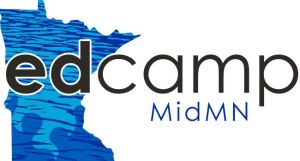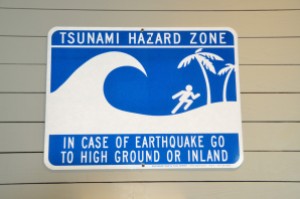 Written Thursday, June 9, 2016
Written Thursday, June 9, 2016
By Angie Gentile-Jordan, CMLE Office Administrator
This summer I got to be a part of EdCamp for the first time, and I’m still in awe of the positive energy from the event. Seriously, even just re-reading the notes from the sessions that I missed was fun! I’m so impressed with the amount of knowledge and enthusiasm from our local educators.
This event is what is referred to as an “unconference.” That means the agenda for the day is drawn up in real time by the people participating. A simple explanation is that one attendee names a topic they would like to learn more about, and the audience is asked if there is anyone in attendance that could teach on that topic. See here for more explanation. It was a new concept for me, but makes total sense. In the fast-paced world of K-12 education a schedule made ahead of time might not be relevant by the time the event rolls around. You can check out the schedule from EdCamp MidMN 2016 here.
I had such a hard time choosing which sessions to go to! I was curious about all of them. But I narrowed it down to these four: Digital Organization, Digital Citizenship, Tech Integrationist Discussion, and Culture of Reading.
Digital Organization: I learned about the challenge of using technology in the most efficient way in regards to keeping students organized. Educators shared about their experiences using different platforms like Schoology, Skyward, Planbook, and even just regular paper planners. The age of the student plays a huge factor in deciding which platform to use. Parental involvement also makes a difference with how likely a student is to actually use their planning tools. There was also a discussion on how “in your face” these reminders and planners should be, and when students need to take responsibility for remembering their obligations.
Digital Citizenship: This conversation began with several attendees voicing their frustrations with using the Common Sense Media site to teach kids how to be smart online. There is also the challenge to find time within the school day to talk about digital citizenship. There was agreement that it needs to be an ongoing conversation, beginning right away in kindergarten, and that each age group needs to have it’s own tailored content. Since many schools have gone 1:1 with their devices, that presents another challenge of how to handle a situation in which a device is used inappropriately. Many in the discussion shared that taking the device away isn’t the best answer, since the student does need that device to complete schoolwork. Some suggestions were to close the App store, turn the device in at the end of the day, or just plain old detention. There was also a conversation about trying to teach students how to use social media in an appropriate way – the example was given from an instructor that created Facebook and Twitter accounts from the point of view of characters in a book that they were reading. The students then were able to use those accounts from the perspective of the characters, which gave them experience in how to create and react to content on social media and online.
Tech Integrationist Discussion: This session was a chance for tech integrationists to share the responsibilities they are tasked with at their schools, and also the challenges that go along with the position. Two challenges that were common were differentiating themselves from the IT or tech department, and getting teachers to allow them into their classrooms to help with incorporating technology into their lesson plans. Some solutions presented were sending out a Google Form to teachers asking about what they would like to learn, and then setting up an appointment, and following up afterwards. Another strategy that worked well for one attendee was trying to get “in” with at least one teacher per grade level, because people are more likely to listen to their peers.
Culture of Reading: This was by far the biggest session of the four that I attended. People were packed in the room, and some even had to stand in the doorway! It was so exciting to see people dedicated to encouraging kids to read! People shared some ways that had worked in their classrooms to help kids love to read: incorporate choice and have students select which books they actually want to read, make summer checkout available for reading over break, and featuring Book Talks so students share what they like to read with each other. Another option that sounded like fun was a “Book Tasting” where a teacher had selected books to be appetizers, main course, and then dessert, where kids were able to get five minutes to sample at each station. There was also discussion of the best ways to ensure comprehension and that the students are being challenged in their reading choices.
 Thank you to all the educators that made EdCamp MidMN 2016 successful! You were all so welcoming, and I appreciated the chance to find out what content CMLE needs to feature in order to be a support to area educators.
Thank you to all the educators that made EdCamp MidMN 2016 successful! You were all so welcoming, and I appreciated the chance to find out what content CMLE needs to feature in order to be a support to area educators.
Image credit: https://unsplash.com/(Aaron Burden), licensed under CC0 1.0
 September is Classical Music Month! Other things to celebrate in September. . .
September is Classical Music Month! Other things to celebrate in September. . .




